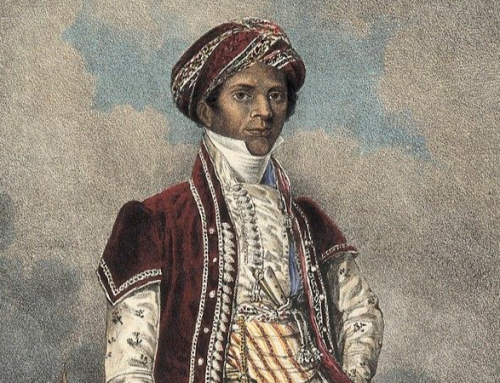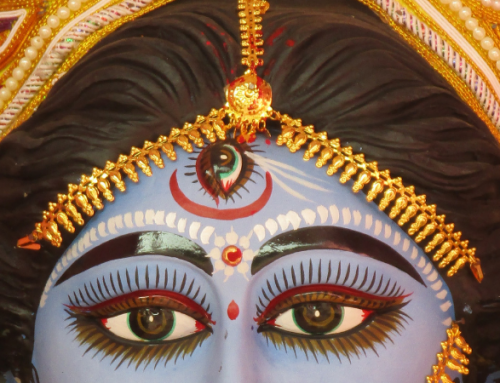Happy Guru Purnima!
A few days back as I sat with three friends for tea the discussion veered toward the recently-completed fifth season of the TV series Game of Thrones. Half an hour later we were still speculating about what may transpire in Season Six. Being the sole member of that group who has actually read the books as well, I was already familiar with what were for non-readers the finale’s biggest shocks, and could also inform them of what has happened in the books that has not happened on screen, and vice versa.
Many of my readers may not be as fascinated by this saga as are I and many of my friends; I mention it because of my amazement at just how caught up millions of readers and viewers have become in the doings of a group of fictional characters that inhabit an imaginary medieval world. A simple internet search discloses raging debates about story lines, and threats to George R. R. Martin to hurry up and finish Books Six and Seven before the onscreen version makes his own finale moot. It is a dramatic real-world example of a principle that I never tire of restating: humans can simply not be separated from our stories.
Humanity is narration, both of self (who I am and what I do) and other (how and where I fit in); try to sneak by without writing your own self-description and others will describe (and thus pigeon-hole) you. Personal narratives may be essential, but getting stuck in them is not. Life often seems simpler when we relax into telling ourselves what we can and can’t do based on what we believe ourselves to be; and there is a general human tendency to want to be told what to do, by our inner scolds or some outer figure to whom we have ceded authority. Rather than rely on that awareness of limitless scope that animates each of us, we apply to it filters that permit us to explore our realities only within circumscribed perimeters.
When (not infrequently) people try to involve me in disputations over whether a particular substance or procedure is or is not “Ayurvedic”, occasionally basing their arguments on an actual Sanskrit text but usually quoting some secondary (and modern) “authority”, I feel it my obligation to serve as iconoclast, sometimes directly and melodramatically, as I did during my 2013 visit to Russia. When I was told that coffee is not Ayurvedic (at a conference in Moscow) I wasted no time in dragging my translator out to the nearest barista for a latte.
I could be so bold because the Caraka Samhita (Ayurveda’s premier tome) states unequivocally that there is no substance or action in the world that CANNOT be used as a medicine; and since at that moment I sensed that my system could use a latte I went in search of one. Coffee being among the many substances (including among others potatoes, tomatoes, chilies, tobacco, and chocolate) that were not available in India when those texts were composed, no textual reference can be cited to bolster any opinion on their use that might be made by a modern-day authority on Ayurveda. One might reasonably opine that coffee is not Ayurvedic “according to so-and-so”; but how can one proclaim that it is “un-Ayurvedic”?
Moreover, even the various texts can disagree about the effects of substances and actions; and there are more traditions of Ayurveda (most solely oral) than the professionalized tradition that was codified in the Sanskrit texts, each tradition with its own opinions about what is “in” and what is “out”. This is for me a happy situation: abundant sentiments that can be weighed in my own balance according to prevailing conditions to provide a determination at any particular moment.
For some however the answer lies in yet further comparison of the comments and beliefs of others, which demands yet more information to sift through; for some this translates into a craving for ever-more knowledge, supported by our consumerist world that exalts cravings. How difficult it is to convince those who permit themselves to be defined by external authority to submit to that internal authority who is always ready and willing to offer guidance.
What is true in the limited arena of Ayurveda is yet more true in the bigger domain of spirituality. Indeed its hard to find a veritable living guru nowadays, as fame tends to breed corruption. Perhaps the remaining good gurus are living quiet lives in obscurity with a few dedicated disciples. Without good guidance, aspirants are tempted to seek the solace of dogmas, sects, and guides that assure them they are following the “true” path so long as they observe whatever laws and customs that have been mandated for them. All too often this descends into a ridiculous “my guru can beat your guru” sort of playground competition, too often played out on a world stage.
How fortunate I reckon myself to be to have had as a mentor someone who refused ever to let me slip into such laziness. Guru literally means heavy; while a disciple is busy trying to become “enlightened”, which to the Aghori Vimalananda meant to “lighten” his load of karmas via sadhana, the guru’s job is to provide purified stability. To be a guru is thus to bear quite a heavy burden, which is why Vimalananda both refused to call his devotees ‘disciples’ and refused to call himself a guru, believing as he did that to call yourself a guru and claim to know something shuts you off from learning anything new. He sought always to remain a student, and advised his students to do the same.
“Never take what I say as gospel truth,” he would say. “I am human, which means that I make mistakes. Always first try out what I say, experience it yourself, and then you will know whether or not it actually is the truth. Because you are human you too make mistakes; that is inevitable. Just always make sure that you make different mistakes each time. Then you will never cease to progress.”
On July 30 or 31 (depending on your hemisphere and time zone) we will celebrate Guru Purnima, the full moon on which the guru is to be revered.
May the gurus of all times and places shower compassion upon us all!
Guru Om Tat Sat!


